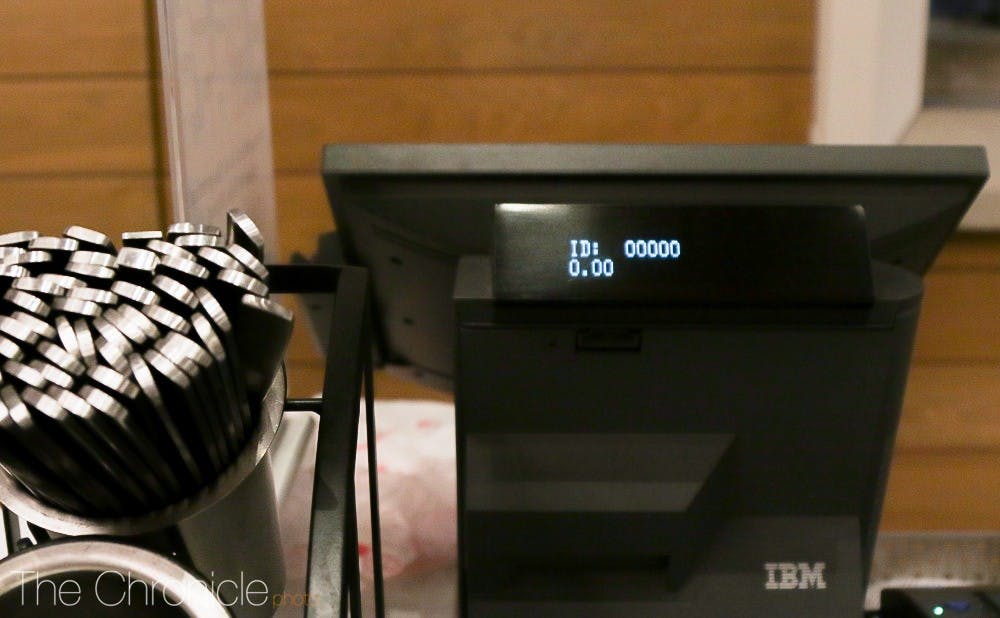Some students finish the semester with an overabundance of food points, others run out early. How do they strike the balance of maintaining their food points this late in the semester?
Some students improvise different methods to maintain healthy eating schedules and balance their food point allotment. Whereas sophomores, juniors and seniors have no dining swipes to rely on, several first-years and their older counterparts described plotting out the trajectory of their food point consumption by dividing points by daily allotment.
Sophomore Zach Bernstein explained the philosophy that has left him with about $1,200 food points at the beginning of December from more than $2,800 from the start.
“Having a restriction on the amount I can eat versus at home, sort of made me more conscious—maybe very conscious—of what I was eating, in terms of quantity. So I set a very hard limit on myself,” he said.
Regarding approaches for conserving points, Bernstein mentioned that several students turn to FLUNCH with professors as a way to get a good meal. He also joked that it is a "tradition" for some people to go back to Marketplace during those holidays and find a first-year friend who will guest swipe them.
First-year Clayton Shafer described a forward-looking motivation for conserving food points. He noted that he had a balance of $317 food points at the end of November because he was “saving up for tenting next semester.”
On the other hand, most first-year students, who start the semester with either $456 or $527 food points, have a different strategy—focusing on dining swipes at Marketplace, rather than food points late in the semester. Because of Marketplace’s buffet-style setup, many students can maintain a two-meal diet of breakfast and dinner only.
First-year Rafaela de Oliveira described her usual course of action, which was also a product of her schedule being morning-heavy, she said. She noted that she has a friend with whom she shares courses who also affects her eating habits.
“We have a 10:05 class on Tuesday and Thursday, so we skip breakfast and go to lunch after class and eat equivalency,” she said.
Other students described supplementing their food point balances with events hosted by organizations such as Devils After Dark that feature free food.
Yet, in a conundrum that normally only impacts upperclassmen, the process of using up extra food points—which can be rolled over from the fall to spring semester but not from year to year—can be a challenge for students who are ahead of schedule. Bernstein noted he has seen upperclassmen attempt to sell extra food points, but said that he did not know the logistics of that proposition.
Although a representative from Duke Dining did not provide explicit data on food point usage and waste, they did mention in an email that, “with all the restaurant additions to the Duke Dining program over the recent years, there are very minimal food points not spent.”
The email also noted that food points which are not otherwise disposed of can also be used for philanthropic purposes.
“Duke Dining works with [Duke Student Government] and Duke Stores for donating unused food points for a week in April to purchase needed items for local Durham Shelters,” the representative wrote. “Students also have many options to purchase nonperishable items in bulk, as well as treat guests to meals on campus.”
Get The Chronicle straight to your inbox
Signup for our weekly newsletter. Cancel at any time.

